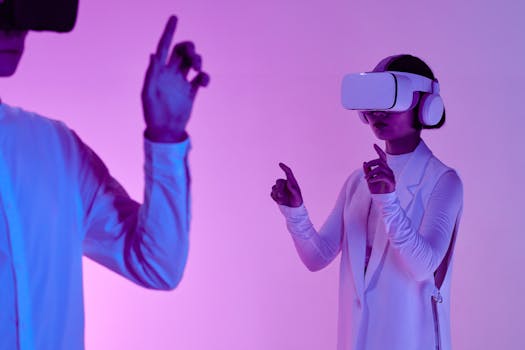
Cultural Shifts and Societal Trends Leading to 2025
Cultural shifts and societal trends are constantly evolving, and it’s essential to stay ahead of the curve to understand what the future holds. As we approach 2025, several key trends are emerging that will shape our world in significant ways. Cultural shifts and societal trends are crucial in determining how we live, work, and interact with one another.
Section 1: Technological Advancements

One of the most significant cultural shifts we’ll see by 2025 is the increased adoption of technological advancements. Artificial intelligence, virtual reality, and the Internet of Things (IoT) will continue to transform industries and revolutionize the way we live. For instance, AI-powered chatbots will become more prevalent in customer service, while virtual reality will change the face of entertainment and education.
Moreover, the rise of 5G networks will enable faster data transfer and lower latency, making it possible for widespread adoption of IoT devices. This will lead to the creation of smart cities, where infrastructure and services are interconnected and optimized for efficiency.
Section 2: Changing Values and Priorities

Another significant societal trend leading to 2025 is the shift in values and priorities. With the growing awareness of climate change, mental health, and social justice, people are reevaluating what’s truly important to them. There will be a greater emphasis on sustainability, with consumers demanding eco-friendly products and services.
Additionally, the concept of work-life balance will continue to evolve, with more people prioritizing flexibility and well-being over traditional 9-to-5 jobs. This will lead to an increase in remote work, freelancing, and entrepreneurship, as individuals seek to create a better balance between their personal and professional lives.
Section 3: Diversity, Equity, and Inclusion

Diversity, equity, and inclusion will remain essential values in the lead-up to 2025. As the world becomes increasingly interconnected, there will be a greater need for understanding, empathy, and tolerance. Companies will prioritize diversity and inclusion initiatives, recognizing the benefits of a diverse workforce, including increased innovation and creativity.
Furthermore, there will be a growing focus on accessibility, with businesses and governments working to create more inclusive environments for people with disabilities. This will involve the development of accessible technologies, infrastructure, and services, ensuring that everyone has equal opportunities to participate and contribute.
Section 4: The Rise of the Global Citizen

By 2025, the concept of the global citizen will become more prominent. With the rise of social media, international travel, and cross-cultural exchange, people will be more connected than ever before. This will lead to a greater sense of global awareness, with individuals recognizing their role in addressing global challenges like climate change, poverty, and inequality.
As a result, there will be an increase in social activism, with people using their voices and actions to drive positive change. This will involve collaborations between governments, businesses, and civil society, working together to create a more just and equitable world.
Section 5: The Future of Education and Skills

Finally, the future of education and skills will undergo significant changes by 2025. With the rapid pace of technological advancements, there will be a growing need for lifelong learning, as workers seek to upskill and reskill to remain relevant in the job market.
Moreover, there will be a greater emphasis on soft skills, such as creativity, critical thinking, and emotional intelligence, as these become increasingly valuable in the automated workplace. This will lead to a shift towards more holistic education systems, focusing on the development of the whole person, rather than just academic achievement.






